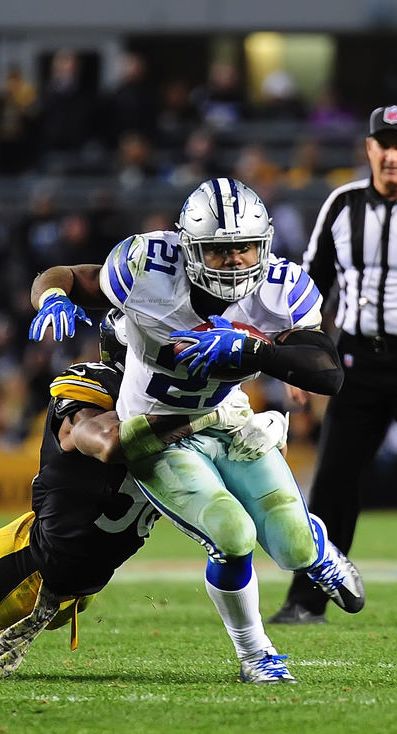It’s a saga we’re familiar with: NFL players avoiding immediately serving a suspension by drowning the matter in a sea of legal appeals.
On Aug. 11, the NFL suspended Ezekiel Elliott for six games during the 2017 NFL season. Elliott was found, by the NFL, to be in violation of the league’s domestic violence policy due to an incident from more than a year ago.
Elliott followed what most players do and challenged the ruling. His appeal hearing was conducted by an arbitrator appointed by commissioner Roger Goodell. Before the verdict was announced, Elliott filed a petition to have the appeal hearing decision nullified. To no one’s surprise, Elliott lost the appeal and his suspension was to be served. What’s different about this is since he filed a separate motion with the U.S. District Attorney court in Texas, he is granted an injunction. This gives Elliott the green light to play until his case is officially heard with a decided ruling. However, if we remember from the Tom Brady “deflategate” mess, the NFL does not accept court rulings quietly. After Elliott received a hold on his suspension, the NFL filed their own appeal, arguing that Elliott disregarded the first appeal process and took the matter to court without reason.
On Oct. 12, the NFL won their appeal and Elliott is to be suspended for the next six games. Elliott and his legal representative asked the court to conduct a full review and filed for an emergency hearing on temporary restraining. On Oct. 17, Elliott was granted the restraining order until Oct. 30. Although he was successful in prolonging his eligibility to play, Elliott was denied his motion to have his case thrown out along with his suspension.
On Oct. 30, U.S. District Judge Katherine Polk Failla denied Elliott’s request for an injunction and his suspension was to be served immediately. We’ve heard this before.
Unsurprisingly, the 2nd U.S. Circuit Court of Appeals in New York issued Elliott an administrative stay, allowing him to play Nov. 5 against the Kansas City Chiefs, but he will need another court miracle to play Week 9 on Nov. 12 against the Atlanta Falcons. As it stands today, Elliott will be suspended for the original six games he was barred from since the beginning. However, I would be surprised if another judge out there granted him a last-minute pass to play for an additional week.
It’s important to clarify that Elliott did not face any criminal charges from the domestic violence issues. This is not to mention that the victim gave one false statement to the police about an allegation she made. Despite the false claim, the Ohio prosecutor believed the victim’s other claims. Charges were not brought up against Elliott because the evidence was not there to move forward with a case. The NFL also believes that the domestic abuse took place and per the new guidelines, the guilty player—in this case, Elliott—will serve a six-game suspension.
He was never going to dodge the suspension outright, so using the court system to push back the start of his ban didn’t help anybody. Now, he’s going to miss two big games against the Falcons and the Oakland Raiders, plus three other critical divisional games.
The soap opera between Elliott and the NFL is over, but the drama will continue as the Dallas Cowboys look to keep their playoff hopes afloat without their star running back.

